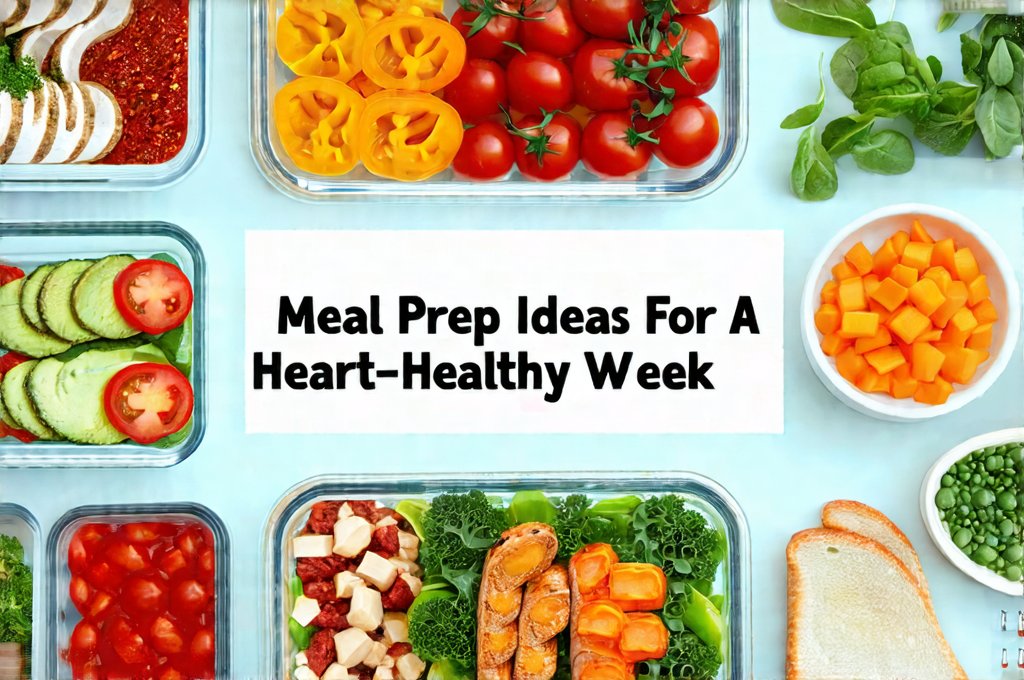Maintaining a heart-healthy lifestyle doesn’t necessitate drastic dietary overhauls or hours spent in the kitchen. Often, it’s about making thoughtful choices and incorporating simple strategies into your routine – and one of the most effective is meal prepping. A well-planned approach to meals removes temptation for less nutritious options, ensures you have readily available wholesome foods, and ultimately supports consistent healthy eating habits. It’s about proactively taking control of your diet rather than reacting to hunger with whatever’s fastest or easiest.
Many people associate “meal prep” with restrictive diets and bland food. This couldn’t be further from the truth! Heart-healthy meal prepping is actually a fantastic opportunity to explore new flavors, experiment with different cuisines (Mediterranean, Asian, even Tex-Mex can all be adapted!), and discover delicious combinations you might not have otherwise tried. It’s about building a sustainable system that works for you, fitting into your lifestyle rather than demanding you change your life around it. The goal isn’t perfection; it’s progress towards consistent, nourishing meals.
Building Your Heart-Healthy Pantry & Shopping List
Before diving into specific recipes, let’s establish the foundation: a well-stocked pantry and a smart shopping list. This makes prepping significantly easier and less stressful. Focus on foods known to support cardiovascular health – think whole grains, lean proteins, healthy fats, and plenty of fruits and vegetables. Prioritize minimally processed options whenever possible. A cornerstone of heart health is reducing sodium intake, so be mindful of added salt in packaged goods.
A heart-healthy pantry should include items like: oats (steel-cut or rolled), quinoa, brown rice, whole wheat pasta, canned beans (low-sodium), lentils, nuts and seeds (walnuts, almonds, chia seeds, flaxseeds), olive oil, avocado oil, spices (turmeric, cinnamon, garlic powder – herbs are great too!), and frozen fruits & vegetables. These staples provide a versatile base for countless meals. Don’t underestimate the power of frozen produce; it’s often just as nutritious as fresh and eliminates waste.
Your shopping list should reflect these pantry essentials, plus any fresh ingredients needed for your planned recipes. Consider incorporating: leafy greens (spinach, kale), colorful vegetables (broccoli, bell peppers, carrots), lean proteins (chicken breast, fish – salmon is excellent!), fruits (berries, apples, bananas), and low-fat dairy or plant-based alternatives. Planning meals around what’s on sale can also help keep costs down. Remember to check ingredient labels for hidden sugars and unhealthy fats.
Breakfast Boosters: Quick & Nourishing Starts
Breakfast often gets skipped due to time constraints, but it’s a crucial meal. Prepping breakfast components can save you valuable minutes in the morning and ensure you start your day with sustained energy. Overnight oats are a fantastic option – simply combine oats, milk (dairy or plant-based), chia seeds, berries, and a touch of sweetener (maple syrup or honey) in a jar and let it sit overnight.
Another easy prep idea is breakfast burritos. Scramble eggs with spinach and black beans, wrap in whole wheat tortillas, and freeze individually. These can be quickly reheated for a grab-and-go option. Don’t forget about smoothies! Blend frozen fruit, spinach, protein powder (optional), and liquid of choice for a quick and nutritious breakfast or snack. Batching smoothie ingredients into freezer bags makes morning blending even faster.
Finally, consider hard-boiled eggs. They’re a portable source of protein and can be added to salads, snacks, or enjoyed on their own. Preparing a batch at the beginning of the week provides a convenient and healthy option throughout your busy schedule. The key is finding what works best for your mornings and making it accessible.
Lunchbox Logistics: Portable & Satisfying Options
Lunch often poses a challenge when you’re away from home, leading to unhealthy choices. Meal prepping lunches eliminates this hurdle. Large batch salads are excellent – combine leafy greens with grilled chicken or fish, quinoa, chopped vegetables, and a light vinaigrette dressing (stored separately until serving). Mason jar salads are another great option, layering ingredients in order of density to prevent sogginess.
Soup is incredibly versatile and can be made in large batches. Lentil soup, vegetable barley soup, or even a tomato-based soup with lean ground turkey are all heart-healthy choices. Pack it in a thermos to keep it warm until lunchtime. Leftovers from dinner are also fantastic lunch options – embrace the power of repurposing!
Consider pre-portioned snack packs as well. Include things like: a handful of almonds, a piece of fruit (apple slices with peanut butter), or low-fat yogurt. Having healthy snacks readily available prevents impulsive cravings for less nutritious foods. Remember to pack reusable containers and cutlery to minimize waste.
Dinner Delights: Heart-Smart Main Courses & Sides
Dinner is often the most time-consuming meal, but prepping components can streamline the process. Roasting a large tray of vegetables (broccoli, Brussels sprouts, sweet potatoes) at the beginning of the week provides a healthy side dish for multiple meals. Similarly, cooking a batch of quinoa or brown rice saves time during busy weeknights.
Lean protein is essential for heart health. Grilled chicken breast, baked salmon, or lean ground turkey are all excellent choices. Consider marinades using herbs and spices instead of salt-heavy seasonings. Sheet pan dinners are incredibly easy to prepare – simply toss protein and vegetables with olive oil and seasoning, then roast in the oven.
For a complete meal, pair your protein and vegetables with a whole grain side dish. Focus on portion control. Using smaller plates can help you avoid overeating. Don’t be afraid to experiment with different flavor combinations and cuisines – heart-healthy eating should be enjoyable! Remember that consistent effort, even small changes, builds lasting habits.




